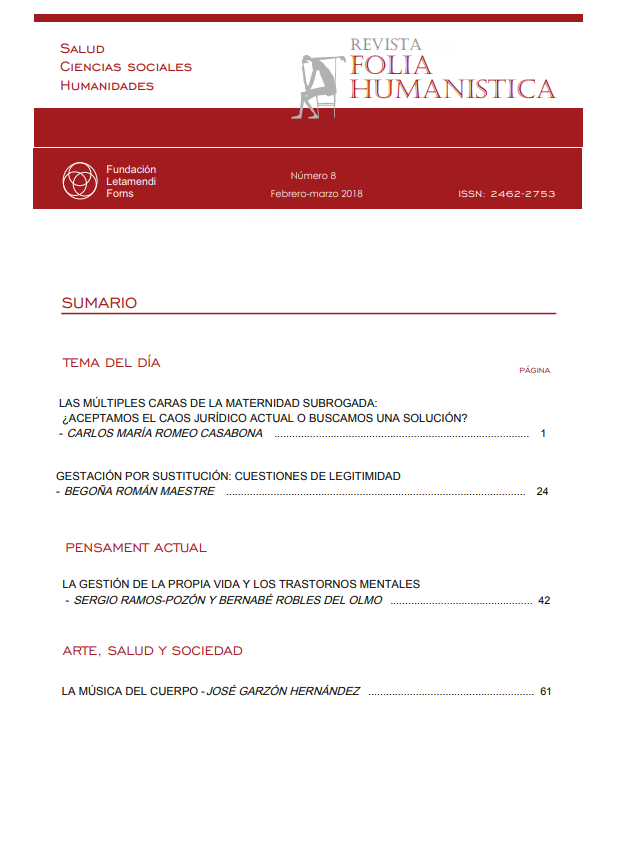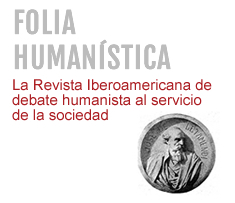Gestation by substution
questions about its legitimacy
DOI:
https://doi.org/10.30860/0035Keywords:
gestation by substitution, bioethics, legitimacy, principles ethics, prudence, consequentialismAbstract
We address in this article the issue of gestation by substitution as a bioethical problem, that is, as a new situation in which maternity and pregnancy are separated thanks to biotechnological advances that have allowed assisted reproduction techniques; we inquire into the possibility of its ethical correction and the corresponding legalization outlining the conditions. We divide this work into three parts. In a first, introductory, we narrow the focus of the problem and we need some vocabulary questions. In the second part, the most extensive by nuclear, we proceed to the discussion of the reasons from which the surrogate motherhood could be legitimated. In order to be legitimated we distinguish three types of arguments: from principle, a priori or deontological arguments; procedural or prudential arguments, and consequentialist or impact arguments. From these three types of reasons, in the third part we conclude how a certain form of surrogate motherhood could be legitimated.
Downloads
Published
How to Cite
Issue
Section
License
La Revista Folia Humanística se adhiere a Creative Common en la modalidad: Reconocimiento – NoComercial – CompartirIgual (by-nc-sa): No se permite un uso comercial de la obra original ni de las posibles obras derivadas, la distribución de las cuales se debe hacer con una licencia igual a la que regula la obra original.








